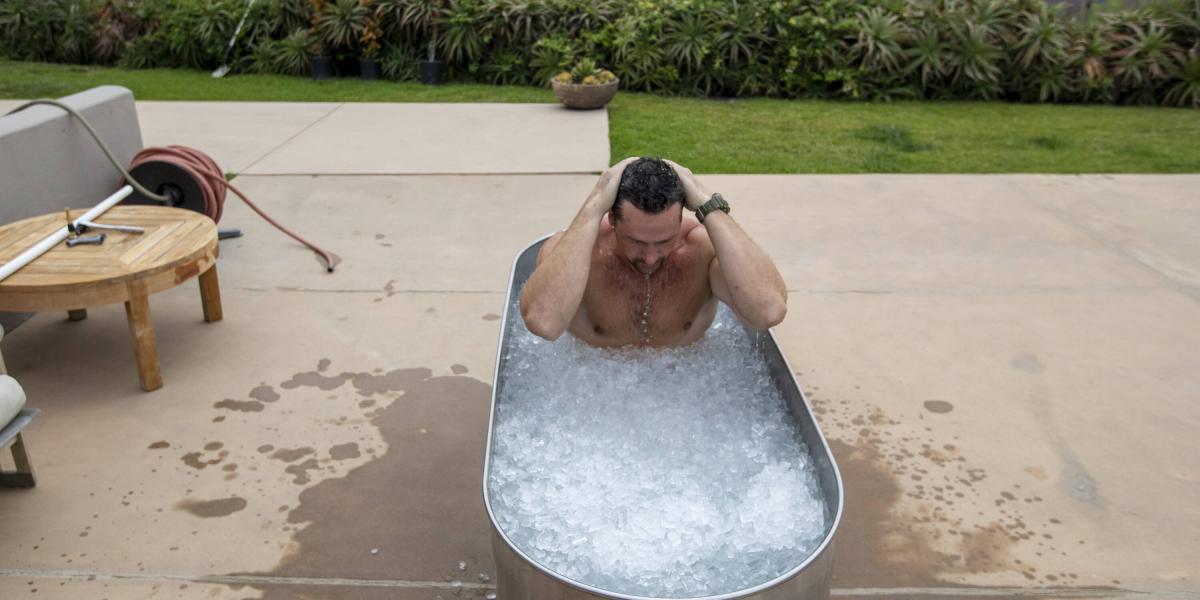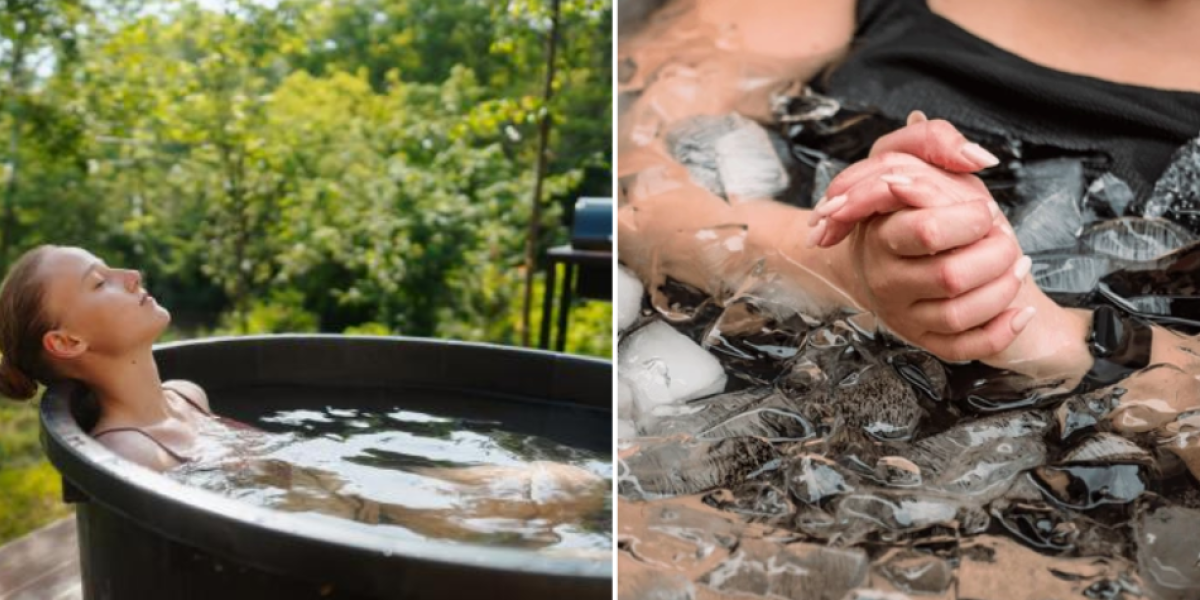Science warns of the risks of the ice bath trend: be very careful

Cold water immersion is an activity that divides people: some love it and others hate it. But the truth is that many people practice it weekly, or even daily, convinced that it's beneficial for their mental and physical health.
Also called cryotherapy, cold water immersion can involve swimming outdoors—in lakes, rivers, or the ocean—taking cold showers, or even immersing yourself in an ice bath. Athletes have long used it to reduce muscle soreness and speed recovery by spending about ten minutes after exercise in cold water at around 10–15°C.
Additionally, cold water immersion has also been used to help treat symptoms of depression, pain, and migraines. In fact, there are many accounts of how cold water therapy has changed lives, healed broken hearts, and helped people through difficult times.

Ice baths have more dangers than benefits, according to experts. Photo: Getty Images
Although many studies have identified benefits associated with ice baths and exercise recovery, a 2014 study found that this may be a placebo effect.
In fact, research on the potential benefits of cold water therapy or outdoor swimming is in its early stages, and there is no scientific data to support it yet.
Risks of cold water For any activity that claims to have a therapeutic effect, the minimum requirement is that it "does no harm." Well, that's something we can't say about cold water, which carries quite a few risks.
In fact, everything points to the fact that less is more when it comes to cold water immersion. In other words, immersing yourself in colder water or staying in it for longer isn't better for you. In fact, it can have the opposite effect.
One of the little-known problems associated with cold water immersion is what's known as non-freezing cold injury. When exposed to cold, it's normal for hands and feet to feel very cold or numb, and to experience tingling or pain upon rewarming. For most people, these symptoms are temporary, and normal sensations return within a few minutes. But for people with non-freezing cold injuries, these symptoms (pain, altered sensation, and sensitivity to cold) can persist in the affected areas for many years due to damage to nerves and blood vessels.

Immersing yourself in ice water is a trend that accompanies the most demanding physical workouts. Photo: iStock
It's caused by prolonged exposure to cold and damp conditions, like those found in wartime trenches, hence its nickname "trench foot." However, it's not just soldiers who are prone to it; cases have also recently been reported in rough sleepers and those who engage in water sports.
Another issue is that it's not known how cold is too cold when it comes to cold water immersion and non-freezing cold injuries. There are also many differences in how our individual bodies respond to cooling. For example, people of African and Caribbean descent appear to be more susceptible to non-freezing cold injuries, so the risks of cold exposure vary from person to person.
However, it is encouraging that a 2020 study of cold-water swimmers indicates that while they may have cold sensitivity, it was not associated with damage to blood vessels in the skin.
Tips for swimming in cold water If you decide to try cold water therapy, there are some tips you should keep in mind:
- Consult with your primary care physician first to confirm that it is safe in your particular case.
- Make sure you're not alone during the dive, and if you're outdoors, be aware of tides, currents, waves, underwater obstacles, pollution, and jellyfish.
- Plan how to get in and out of the water safely: your muscles won't work as well with the drop in temperature, and you might lose feeling in your hands and feet.
- Make sure you have towels, dry clothes, a windbreaker, a hot drink, and shelter when you leave. It's not a good idea to drive or ride a bike until you're warm.
- Stay in cold water for a short time and get out before you experience numbness, pain, or chills.
This article was published on The Conversation, a nonprofit organization dedicated to sharing ideas and scholarship with the public. This article is republished here under a Creative Commons license.
eltiempo





